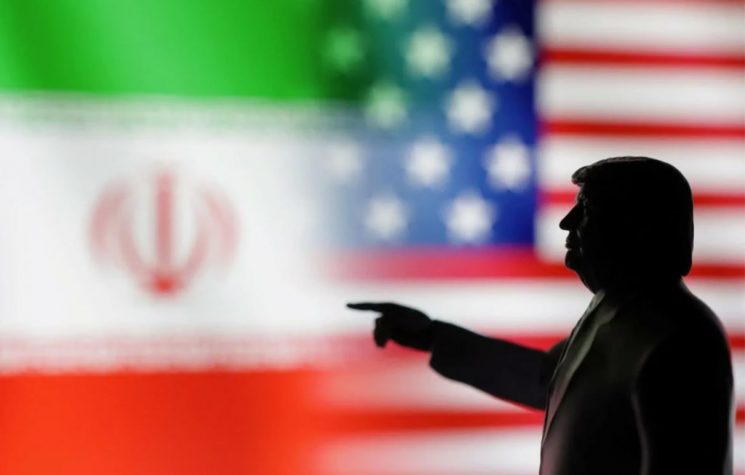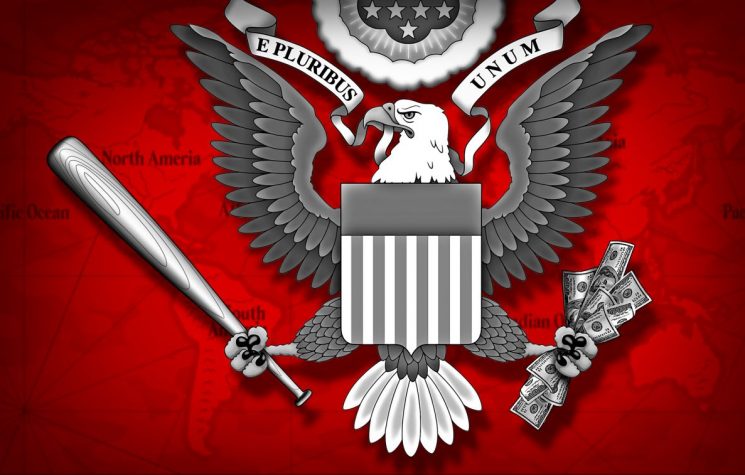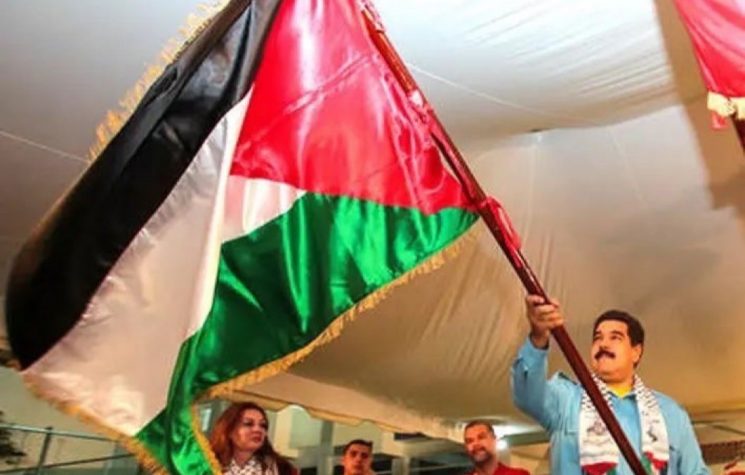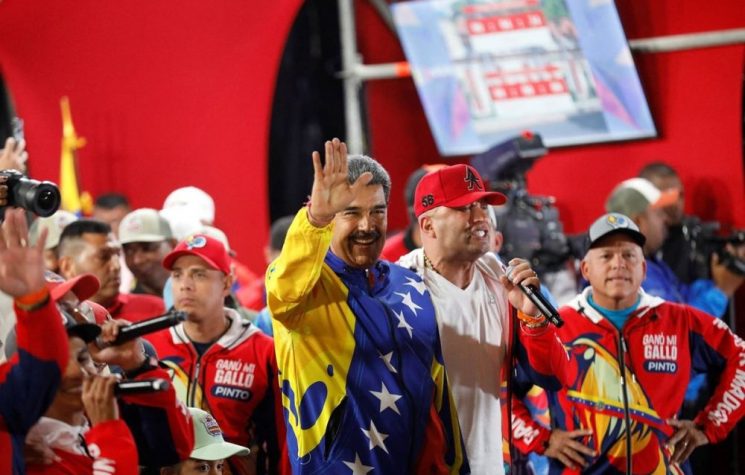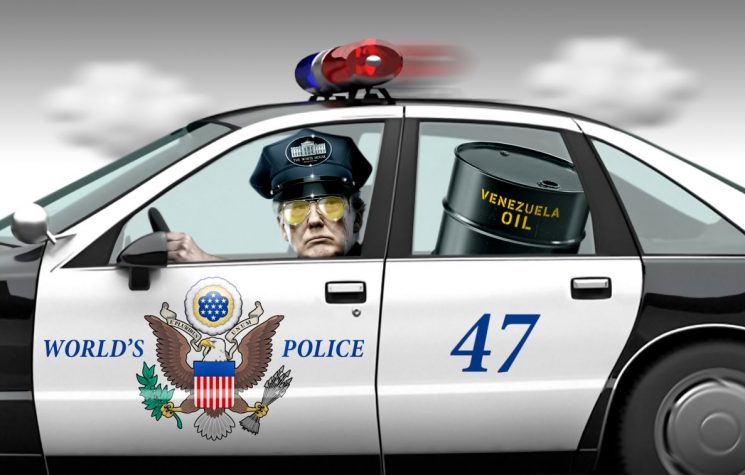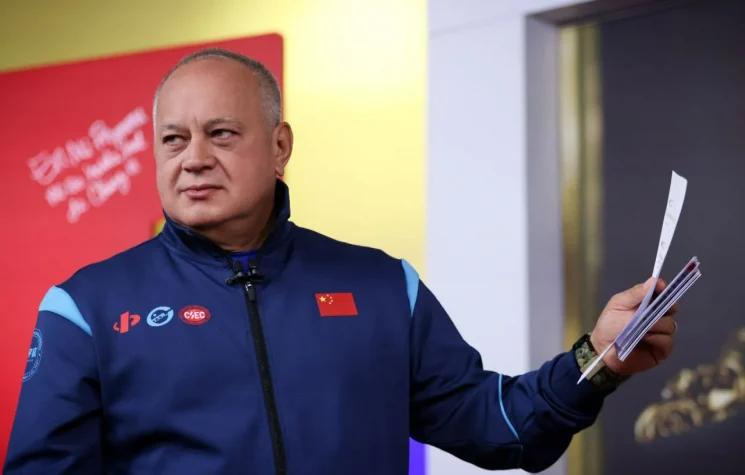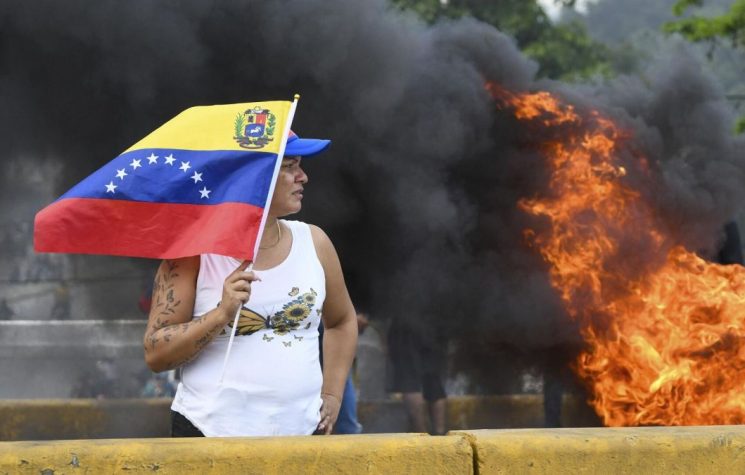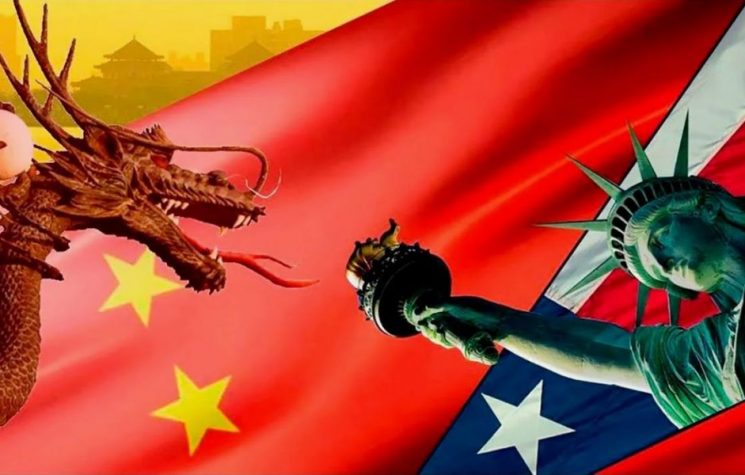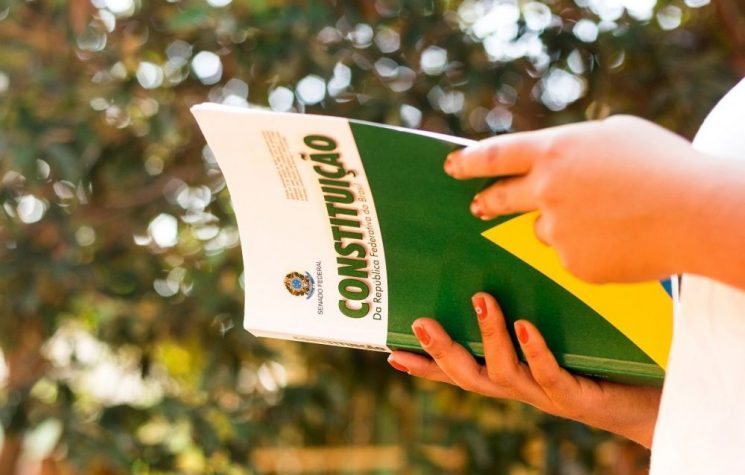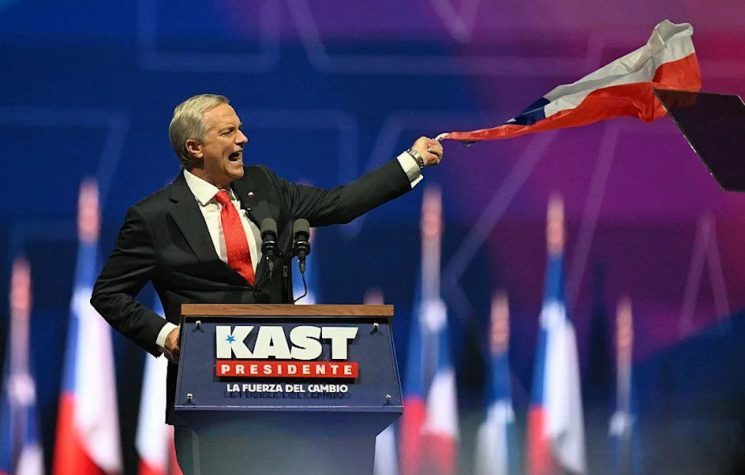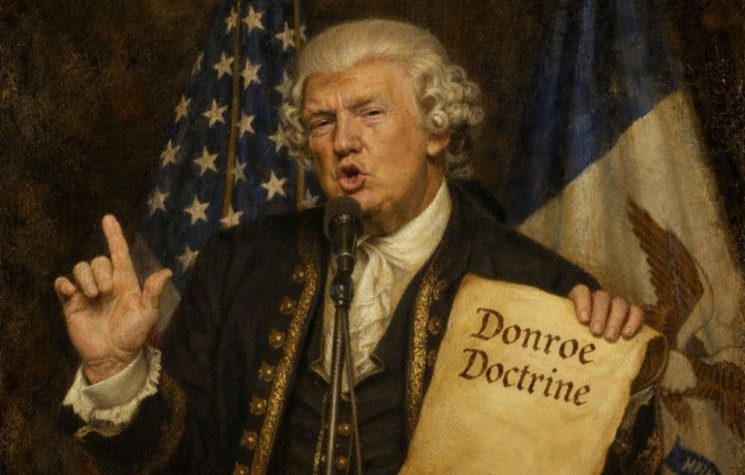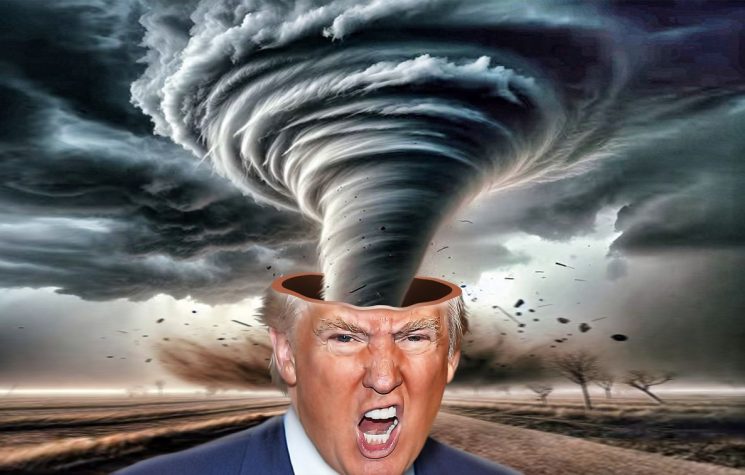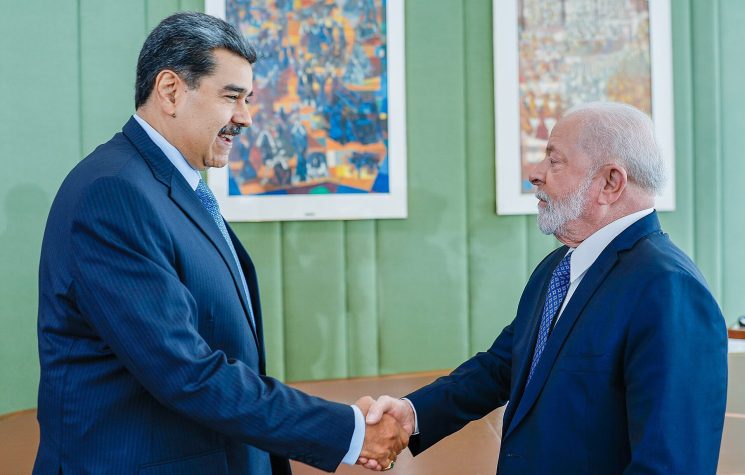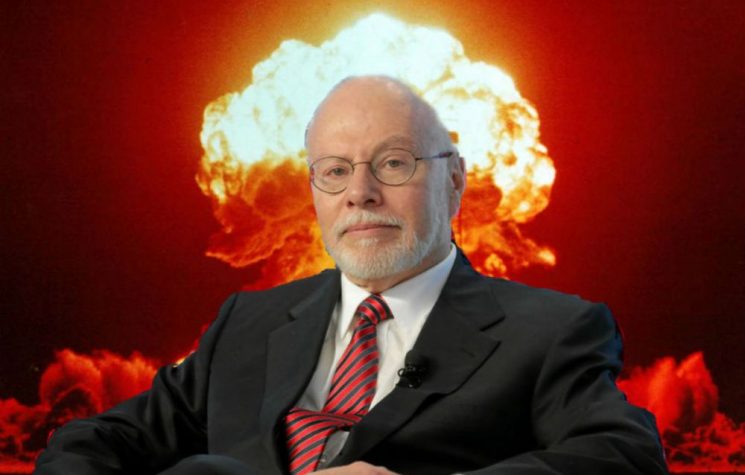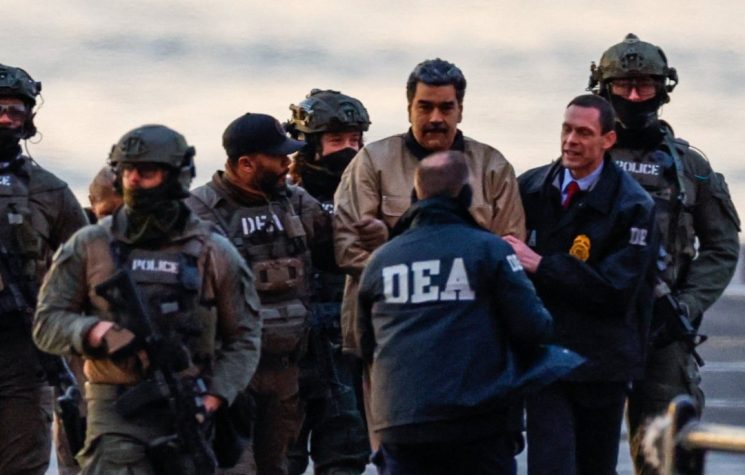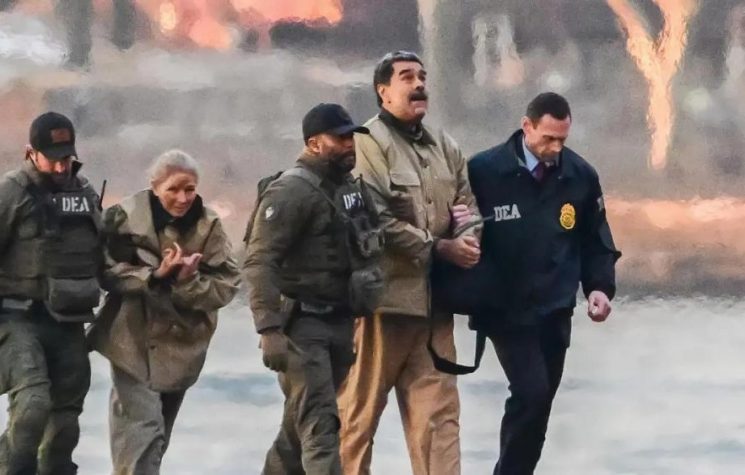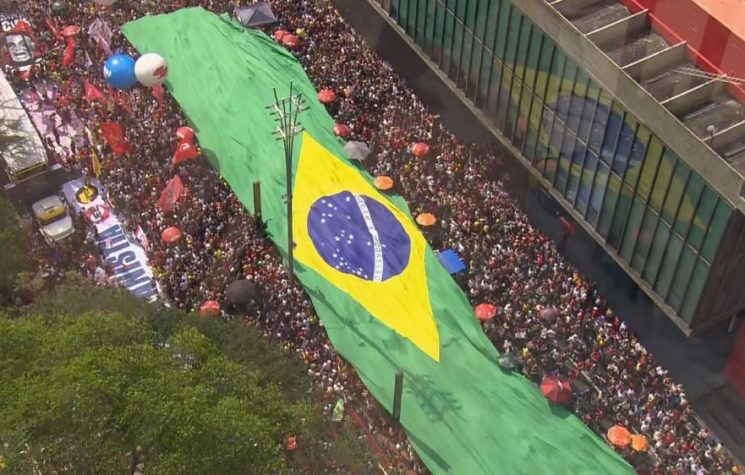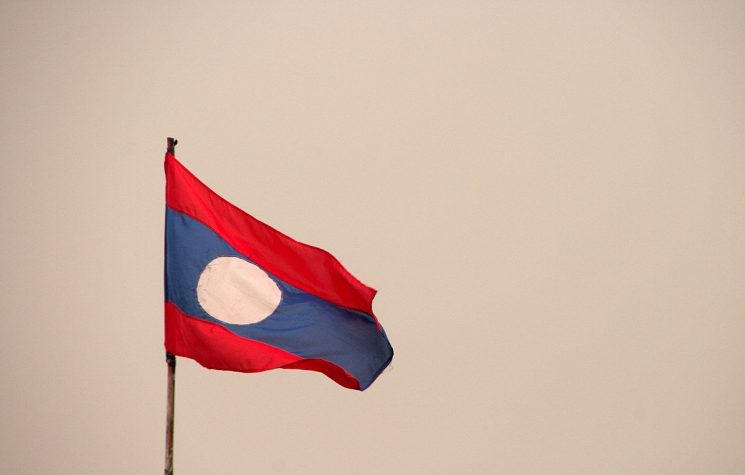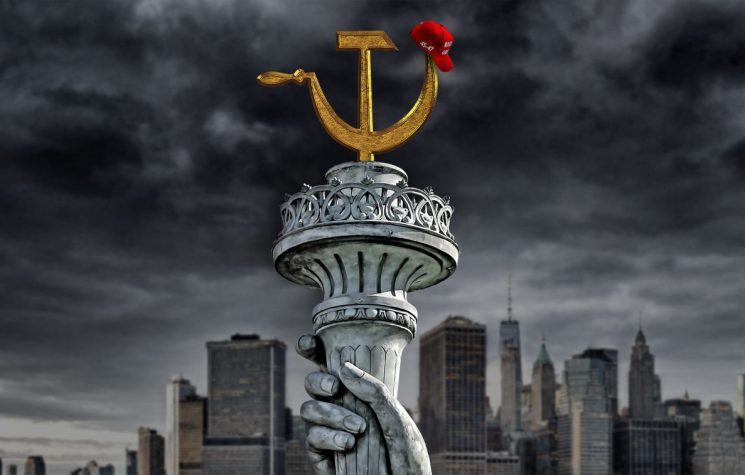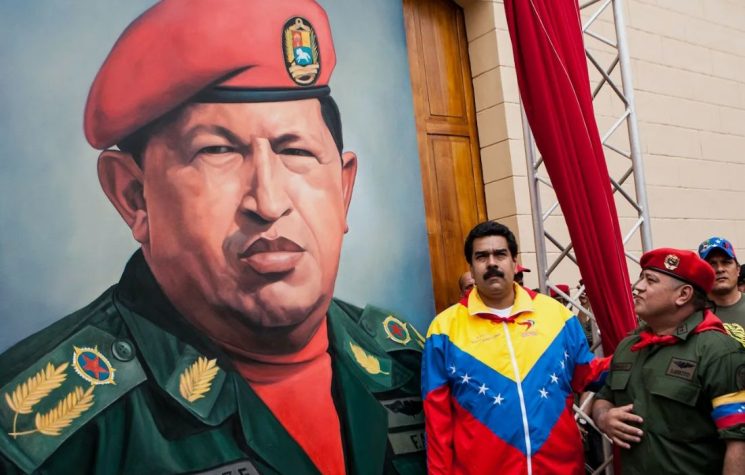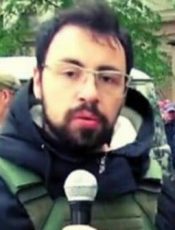Many say that Maduro is not Chávez, but now he has the opportunity to honor his legacy and do something that Chávez himself was never able to do.
Contact us: info@strategic-culture.su
Most of the 25 years of Chavista government have been successive coup attempts, destabilization, boycotts, sabotage, economic blockades, lockouts, riots, violence, chaos and terror on the part of the opposition.
If, on the one hand, the reaction to a government that seeks to reform society for the benefit of the exploited and oppressed majority is natural, on the other hand, Chavismo’s constant attempts at conciliation with the opposition have never managed to pacify the country, because it is useless to change the nature of the bourgeoisie and the imperialism that supports it – this is the class character of the Venezuelan opposition.
Chavismo, therefore, entered an impasse from the first moment it proposed to carry out these reforms in a profound way, shaking the structures of the capitalist system in which its government was involved. In fact, since the 2000s, Venezuela has lived in a kind of transitional state, in which the government and its worker and peasant bases, that is, Chavismo, is a power parallel to the power of the State itself, that is, of the institutions established and controlled by the ruling class.
These institutions of the ruling class, controlled by it, are antagonistic to the Chavista government. Deepening reform attempts, Chavismo sought to create its own institutions and take the institutions the bourgeoisie created and controls from its hands. But this is an inglorious task and after 20 years it has still not been fully accomplished.
Chavismo is the most recent proof that reforming the capitalist system and transforming it into a socialist system based on its own institutions is impossible. It is not a romantic utopia, as utopian socialists, that is, reformists, always want to convince us. It’s simply a utopia. It’s idiotic.
The seizure of government and the reform of institutions only have a progressive and positive character in the sense that they facilitate the violent overthrow of the power of the bourgeoisie and imperialism, and not that they enable a complete institutional transformation so that the people are in power and the bourgeoisie keeps sucking its thumb.
Chavismo is the most powerful social movement to emerge in Latin America since the Cuban Revolution of 1959. Its starting point can be considered the Caracazo of 1989, which motivated Hugo Chávez and other officials to attempt a coup in 1992, which gave them enormous popularity and encouraged the growth of the popular movement born from Caracazo and which finally elected Chávez in 1998.
In 31 elections (including national and local elections, plebiscites and referendums) held since 1998, the opposition won only two significant victories – among them, the parliamentary majority in 2015, as a result of fraud. Currently, Chavismo holds the presidency of the Republic, 19 of the 23 state governments and 213 of the 335 city halls – a secure control of the executive power in all areas. It also has 222 of the 277 deputies in the National Assembly and a majority of parliamentarians in 20 of the 23 state legislative assemblies and in 224 of the 335 municipal councils – a hegemony within the legislative branch. These are evidence of popular support for Chavismo, as all of these positions are filled by representatives directly elected by the people.
Hugo Chávez and Nicolás Maduro created non-state institutions which, however, especially before the coup and destabilizing period opened in 2013, behaved almost like bodies of power, a parallel popular power. I refer particularly to the communes and popular security collectives, and to a lesser extent to the CLAPs and the Bolivarian militia.
This broad organized popular support and dominant representation in executive and legislative bodies allowed the government to exchange bourgeoisie employees for Chavismo members in these institutions, as well as in non-elective institutions, such as the judiciary, the public ministry, the prosecutor’s offices and the National Electoral Council. Especially after the defeat of the 2002 coup, there was a restructuring of the Bolivarian National Armed Force and the Bolivarian National Police, so that the top echelon was made up of legalist and non-coup officials. The doctrine of civic-military union was also created, which meant a democratization of the army and the possibility of arming the population.
It is true that throughout this process Chavismo suffered several setbacks. Its character is not purely proletarian and socialist, but rather bourgeois – in the sense that it is not a force that comes entirely from below, from popular self-organization, but rather that, despite counting on the evident support and enormous influence of the workers, has a reformist ideology and a hierarchy where members of the petty bourgeoisie (such as low and mid-level military personnel like Chávez himself) are at the top. This was already an obstacle from the beginning. And it meant that, as the confrontations with the bourgeoisie and imperialism became more violent, the non-proletarian sectors did not fight forcefully. There were betrayals within the Chavista ranks, there were conciliations and capitulations, there was connivance with counter-revolutionary conduct and there was permission for representatives of counter-revolutionary sectors of the petty bourgeoisie and even the bourgeoisie to infiltrate Chavismo in search of state positions and even to sabotage the movement inside.
The vacillations at key moments, the conciliations, capitulations and even occasional betrayals demoralize Chavismo before the popular masses, to a certain extent. Especially when these masses were suffocated by imperialist economic war. This is the reason for the drop in Maduro’s vote count in the last three elections. The shock against imperialism has been intense in the last ten years. The pressures were enormous. Chavismo was worn out, despite continuing to be, without a shadow of a doubt, a powerful popular movement and a progressive force with revolutionary potential.
The current internal and external coup offensive is not new, but it comes at a time of a general offensive by imperialism in Latin America, particularly South America, with Milei being the spearhead of continental coupism and Bolsonarism maintaining its strength in Brazil, the largest and most important country in the subcontinent. It’s time for Chavismo to learn from its own history. To learn from its mistakes and successes.
How were victories against previous coups achieved? With the radical mobilization of workers and other popular layers. By filling the streets with red to expel the fascist gangs, including by force of arms in the hands of the people. Through the freedom of organization of unions and neighborhood collectives, through propaganda against the enemies of the people and through state intervention over private companies that conspire against the government.
If there is a large portion of the population discouraged and distrustful of the government, it is necessary to carry out actions that prove that Chavismo is their representative and that it deserves their total trust. It is necessary to adopt measures in favor of the people, such as the expropriation of large estates and the handing over of land to peasants, the fight against real estate speculation by allowing each family without decent housing to occupy an empty property, the seizure of all communication vehicles that encourage opposition violence and coup d’état so that popular communicators can show their own programming, tell their own story and express their own opinion.
It is necessary, above all, to take over every factory, every warehouse, every commercial building, every company and every bank owned by the coup bourgeoisie. The only way to establish sovereign political power is to also hold economic power. The biggest of all Chavismo’s mistakes in these 25 years was allowing the maintenance of private ownership of the large means of production by the coup and imperialist bourgeoisie. It was from economic power that the opposition managed to undermine the government. It’s time to put an end to this. Measures that benefit the people economically, that ensure their social rights and that move towards handing over political power to them (that is, the establishment of a genuine democracy) will naturally result in Chavismo regaining the support of part of the popular and middle classes and will expand the government’s authority to crush the coup reaction and arrest all its leaders.
Despite there being a coup underway, both in Venezuela and on the entire continent, there is a fundamental point in the current political situation, particularly the international one, which favors the Maduro government. He has Russia and China as allies and his main neighbors – Brazil and Colombia – are governed by friendly presidents who, although they are not willing to buy Maduro’s fight, tend to block any more incisive action by the United States and the continental right against Venezuela.
Faced with the blatant coup sponsored by the U.S., Maduro made encouraging statements and indicated the path Venezuela should take. He said that if the imperialists “make the mistake of their lives” by increasing coup pressure, he could break contracts with American and European companies in the gas and oil sectors and exchange them for contracts with companies in allied countries, like the BRICS members. Shortly afterwards, he encouraged Venezuelans to abandon WhatsApp and start using other chat apps, namely the Chinese WeChat and the Russian Telegram.
If Maduro is consistent with his words and, supported by the radical mobilization of the Chavista masses, expels the large American and European companies from Venezuela, he will begin to nip in the bud all the harm caused to his people in recent years. These companies, instead of contributing to Venezuela’s economic and social development, drain its wealth, stuff it into their owners’ pockets and, on top of that, finance the coup opposition with that money – when they don’t openly steal the country’s money, as happened with Citgo in the United States or Venezuelan gold in England.
If there is a fear of triggering a military reaction from imperialism with these measures, Maduro should guarantee the military support of Putin and Xi Jinping, agreeing that part of the expropriated imperialist companies could come under the control of Russian and Chinese companies. There is a wide range of partnership possibilities, from full delivery to these companies to the formation of joint ventures, mixed companies, based on win-win agreements. The Russians and Chinese could accelerate the transfer of technology so that Venezuela can stand on its own two feet in various sectors, they could be responsible for infrastructure works (as Beijing does throughout Africa) and they could meet all of Venezuela’s additional needs. And not only Russia and China, but India, Iran and Turkey, with whom Caracas has excellent relations and already forms important partnerships in several areas, could also contribute to the defense of Venezuela in the face of the inevitable attacks from the United States. Brazil, Colombia and Mexico, with their current governments and their regional economic power, could also be important partners in several areas. It is certainly in the national interest of each of these countries to capture a portion of the Venezuelan market.
The great advantage for Venezuela would be to exchange dependence on imperialist companies, which drain its wealth and keep the country backward and unstable, for companies that do not have the same character, even though many of them may be privately owned. Because private capital coming from the BRICS countries, from the countries of Latin America, Asia, Africa and Eastern Europe, does not have the same imperialist nature as private capital from North America and Europe. Even though they are owned by large Indian tycoons, Arab sheikhs or Russian oligarchs, these companies do not control the world market and do not even participate in the monopolies that dominate the global economy. Therefore, they do not have the power to interfere decisively in the politics of other countries or to take small countries hostage. It is not a question of good or bad intentions, but rather an objective reality. China is the largest trading partner of most countries in the world, yet they are still controlled politically and economically by imperialist powers.
Maduro and Chavismo have an immediate and vital need to put the idea proposed by him into practice. This would be the beginning of a revolution even more important and radical than any episode of the so-called “Bolivarian revolution” so far. It would be the beginning of the true liberation of the Venezuelan people from the shackles to which they are still chained. Many say that Maduro is not Chávez, but now he has the opportunity to honor his legacy and do something that Chávez himself was never able to do.












